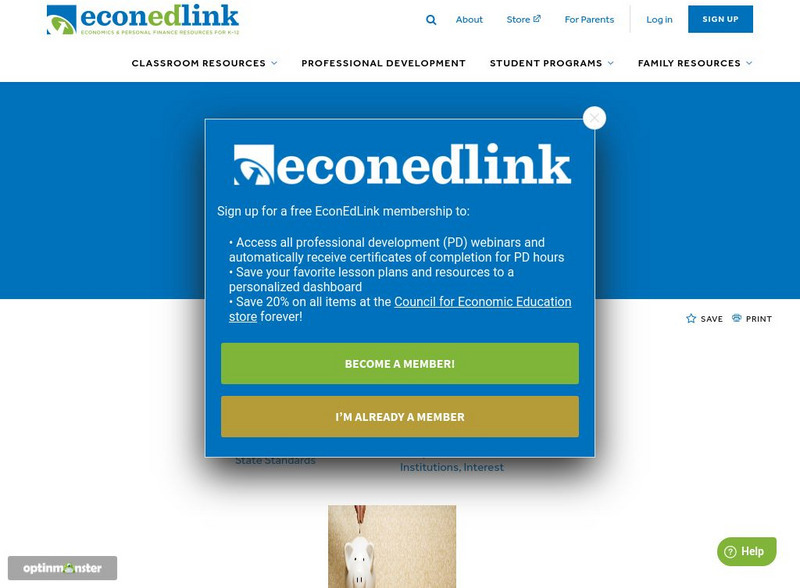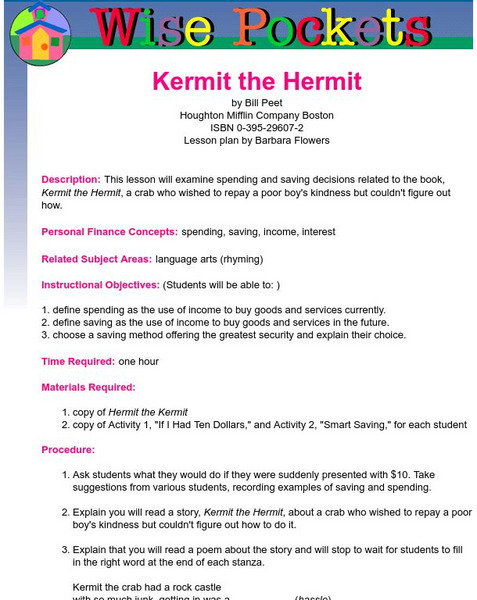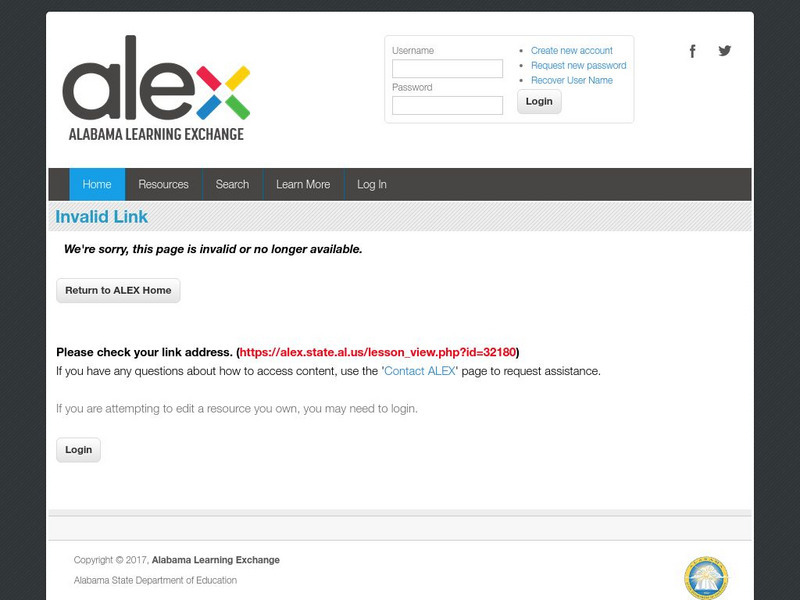Council for Economic Education
Econ Ed Link: Big Banks, Piggy Banks
Use this informative economics lesson plan. Find out how to save your money. "You will read about safe places for keeping money; you also will learn about places where money can earn money."
Scholastic
Scholastic: Adventures in Math: Lesson 4: How to Use Your Money
In this lesson plan, learners will identify why having a budget and keeping records of their spending and saving habits helps them make better financial choices.
Council for Economic Education
Econ Ed Link: We Are Consumers and Producers
This lesson plan is geared toward beginning economics concepts. "In this lesson you are going to learn more about how you and others are consumers and producers."
University of Missouri
University of Missouri St. Louis:wise Pockets: Kermit the Hermit
This is an elementary level lesson that deals with spending, saving, income, and interest. Requires the book Kermit the Hermit by Bill Peet. Includes detailed lesson plan along with procedures and activities.
Council for Economic Education
Econ Ed Link: Banking Is Interest Ing!
Banks are important to Americans. We use banks to save money and earn interest, or borrow money and pay interest. This lesson introduces the concepts of banking to children.
Discovery Education
Discovery Education: Money: Kids and Cash
This site provides a lesson about the dynamics of saving and borrowing with banks.
Other
Money Management International: The Berenstain Bears' Trouble With Money
A lesson plan featuring the Berenstain Bears that introduces the concepts of spending, goods, services, income, saving, and interest.
Council for Economic Education
Econ Ed Link: Clickety Clack, Let's Keep Track!
This lesson will show students the importance of keeping track of their savings.
Federal Reserve Bank
Federal Reserve Bank of St. Louis: The Pickle Patch Bathtub [Pdf]
A activity based on The Pickle Patch Bathtub by Frances Kennedy, where students learn about making choices in how to spend money, and how to set goals and develop a savings plan.
Alabama Learning Exchange
Alex: Wild Water Adventure
Students will learn how a system of equations can be used to find the best use of information to make decisions in real-world situations.Students will work in groups of 3s or 4s to develop a system for the best buy on tickets at a water...
Alabama Learning Exchange
Alex: Becoming a Wise Consumer: Comparison Shopping
In this introductory lesson to money management for teens, middle schoolers will use everyday math skills to comparison shop a variety of products. Students will learn several ways to save money, including using store discounts, coupons,...
Council for Economic Education
Econ Ed Link: Big Banks, Piggy Banks
When choosing a place to put their money, people consider how safe there money will be, how easy it is to access, and whether it will earn more money. Students explore how well different savings places achieve these objectives. This...
Council for Economic Education
Econ Ed Link: Every Penny Counts
Lesson that helps learners understand that people must make choices about the goods and services they purchase. Students recognize the prices indicate what people pay for goods and services, learn to compare prices, and understand that...
Alabama Learning Exchange
Alex: Let's Go Shopping!
This lesson will give learners practice with adding and subtracting money using a calculator. It will provide them an opportunity to determine savings using a store coupon, and determine the change they should recieve when making...












